This article has been reviewed by Wego’s editorial team to ensure that the content is up to date & accurate.
Updated 7 January 2022
For non-European travellers, a trip to Madrid, Paris, London or Rome can’t come soon enough. The thought of being able to visit the cultural and historical landmarks in these cities for the summer is nothing short of exhilarating.
Fortunately, the wait is over. As summer approaches, numerous countries in the EU and the rest of Europe are easing their travel restrictions to accommodate fully vaccinated travellers from around the world.
So if you’re looking to once again indulge in exquisite European parks this summer, here are some countries you may be able to visit right now depending on your country of residence along with the latest rules and news for your next European excursion.
Table of Contents
The European Union

The EU recommends travel restrictions should be scrapped for tourists from Australia, Canada, New Zealand and several other non-EU states. While the US has been removed from the EU safe travel list, fully vaccinated visitors from the EU and UK, who can also show proof of a negative COVID test result, may enter the US.
An overview of EU travel measures, including information on the EU Digital COVID Certificate, is available via the European Commission website.
Detailed information regarding quarantine rules, testing requirements and more in the EU’s 27 member states — along with non-EU Schengen countries Switzerland, Liechtenstein, Norway and Iceland — can be accessed through the Reopen EU platform. You can also download the Reopen EU smartphone app for up-to-date information on the go. You can download the app on Play Store or App Store.
The European Union COVID traffic light system
The EU has introduced a traffic light system for a better overview of the epidemiological situation in individual member states. Three colors — red, orange and green — denote high-, medium- and low-risk areas in the bloc. Grey regions signify areas where insufficient data is available.
Please note: The information listed here is not exhaustive. It serves as a reference and is subject to change at any time. All travellers to and within Europe, the EU and the Schengen Area are strongly advised to consult the official guidance and regulations of local, state and national authorities in the relevant countries.
EU Digital COVID Certificate
As of 1 July, all 27 member countries of the European Union have been effectively connected to the EU Gateway along with Iceland, Liechtenstein and Norway. The EU Digital COVID Certificate (previously called the Digital Green Certificate) facilitates the safe and free movement of citizens within the EU and will eventually allow non-European travellers to safely visit the bloc and the continent.
For more information about the Digital COVID Certificate, click here.
The European Union Travel Restrictions by Countries
Albania

All arrivals to Albania will be required to present a negative PCR test, no older than 72 hours, or a negative antigen test no older than 48 hours before departing. either test must be performed by a lab. Arrivals who are vaccinated can present proof of vaccination instead.
Albanian citizens arriving in Albania without a negative covid test or proof of vaccination will be required to self-isolate for 10-days. Permitted arrivals from South Africa, Kenya, Angola, Zambia, Botswana, Senegal must quarantine for 14 days.
Measures to contain COVID-19 remain in effect, including night-time curfews from 11pm to 6am, and mandatory face masks indoors and on public transport.
All land borders are now open and there is no restricted movement around the country.
More information here.
Andorra

Access to Andorra requires passing through either Spain or France, so check their travel restrictions, too, before planning your trip.
All arrivals to Andorra must present a negative PCR test no older than 72 hours or antigen test no later than 12 hours, or proof of vaccination or recovery. Either test must be performed by a lab. Fully vaccinated arrivals are exempt from COVID-19 testing except for arrivals from Botswana, Eswatini, Lesotho, Mozambique, Namibia, South Africa and Zimbabwe
Travel to and from the country is open, but masks are still required in indoor spaces. Andorra also asks that social distancing be respected.
Travellers who intend to stay in Andorra for more than three nights need to present a vaccination certificate, a negative PCR or lateral flow test result, or proof that they have recovered from COVID-19.
More information here.
Austria

All arrivals to Austria must present a negative PCR test no older than 72 hours and a vaccination or recovery certificate. Travellers who have received their booster shots are exempt from the COVID-19 testing.
All arrivals must pre-register online, by filling in a pre-travel clearance form.
Arrivals who do not have documentation of a vaccination booster dose must undergo a second PCR test and remain in quarantine until a negative result is established.
Those who have recovered within 90 days of arrival may arrive without PCR test results are obliged to fill in this form.
Travellers could shorten the quarantine period if they present a negative PCR test result in 5 days of quarantine.
If you are travelling from a country not on Austria’s safelist you will need to complete a pre-travel clearance form. You can find the full list of safe countries and regions here. Currently, entry from Botswana, Eswatini, Lesotho, Mozambique, Namibia, South Africa, and Zimbabwe is not possible.
If you wish to try skiing, you have to obey the 2G requirements where you need to present a full vaccination or a certificate that shows your recovery from COVID-19. Children under the age of 12 are exempt from the 2G requirements, and teenagers who are over 12 have to provide proof of vaccination or sign up for the ‘Holiday Ninja Pass’ that allows them to enter public places with their negative tests. For further details, click here.
Austria is connected to the EU Digital COVID Certificate (EUDCC), which allows restriction-free travel across all EU and EEA countries following proof of vaccination and a negative COVID test. You may have to show it before you enter some of the public places.
10pm curfew for restaurants and other public places.
Masks are required on public transport and in indoor spaces.
More information here.
Belarus
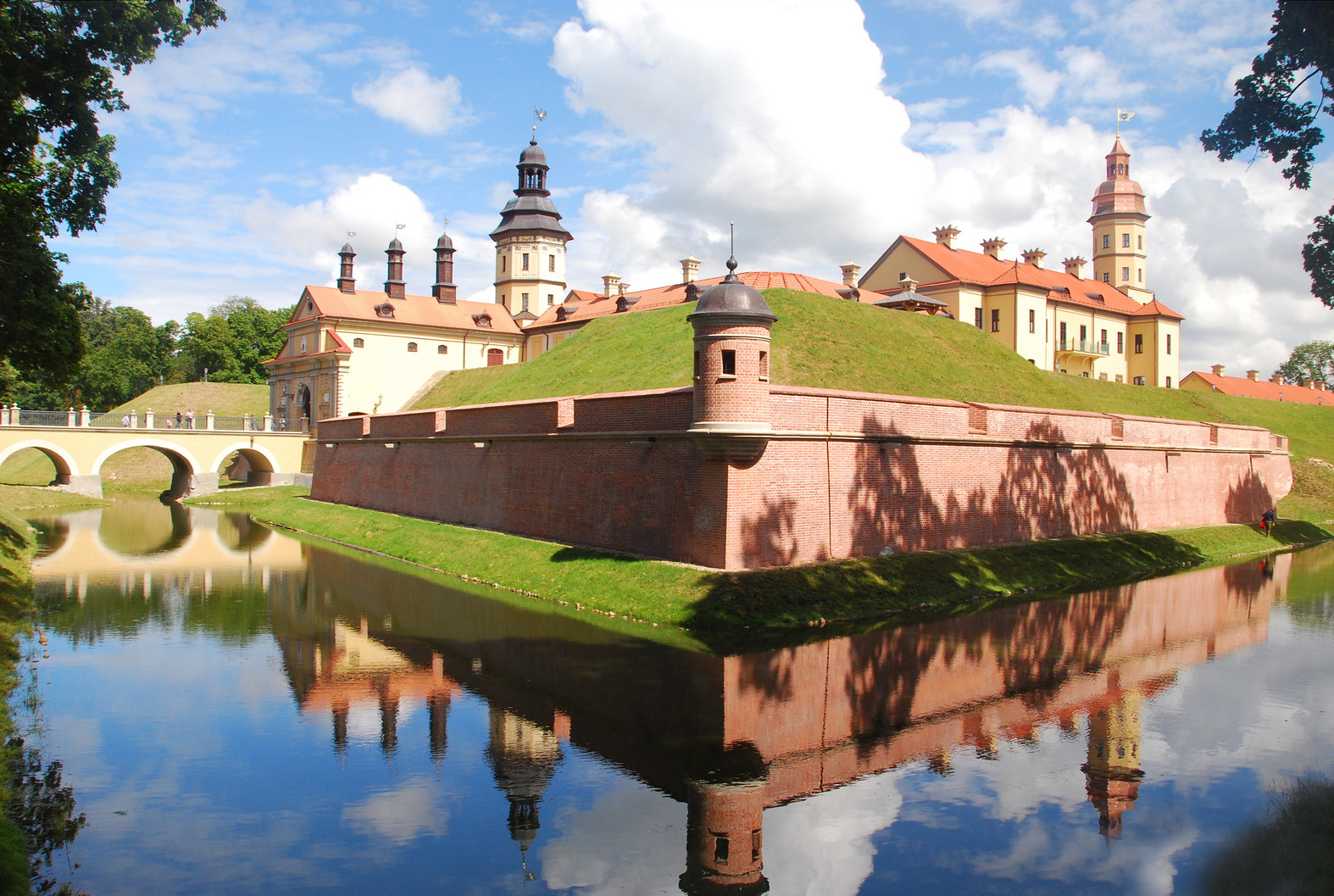
It’s still possible to travel to Belarus by air under certain restrictions, but land travel for leisure is currently banned.
At the moment, most countries are considered high risk but full vaccinated arrivals are exempt from restrictions.
All public spaces and tourist destinations are open with some restrictions in place.
Foreign arrivals who are fully vaccinated are no longer required to do a PCR test 72 hours before entry. This rule still holds for those above six who are not vaccinated.
Masks are compulsory on public transport.
More information here.
Belgium

Travellers have to be connected to the EU Digital COVID Certificate (EUDCC), which allows restriction-free travel across all EU and EEA countries following proof of vaccination and a negative COVID test.
Everyone entering the country must fill in a Passenger Locator Form (PLF) 48 hours before arrival.
Fully vaccinated arrivals from outside of Europe need to take a PCR test no older than 72 hours or an antigen test no older than 24 hours followed by quarantine in Belgium until presented with a negative result.
Unvaccinated arrivals entering Belgium are required to enter 10 days of self-quarantine. If they are from high-risk countries, they will be tested again upon arrival and on the first day and 7th day. If the day 7 result is negative, the quarantine can end early.
Masks are no longer required outdoors but remain compulsory in indoor spaces such as shops, places of worship and public transport.
People entering bars, restaurants, cafes and other indoor must show their COVID-19 safe status through the Belgian Covid Safe Ticket (CST) system.
More information here.
Bosnia & Herzegovina

Bosnia and Herzegovina are open to tourists as long as they can present a negative PCR result, issued no less than 48 hours if arriving from Europe or 72 hours if arriving from outside Europe before travel, or proof of vaccination. Returning citizens, as well as citizens of Croatia, Serbia and Montenegro arriving from these countries, and vaccinated travelers, are exempt from the COVID-19 testing.
Grocery stores, pharmacies, restaurants, and cafes are open, along with most other businesses.
People must wear masks in outdoor and indoor public spaces and on public transport.
The Bosnia and Herzegovina border police are publishing regular updates about foreign travel here.
Bulgaria

Travellers have to be connected to the EU Digital COVID Certificate (EUDCC), which allows restriction-free travel across all EU and EEA countries following proof of vaccination and a negative COVID test.
Bulgaria is operating a color-coded system for international travel. A negative COVID-19 PCR test taken no more than 72 hours before travel is necessary for entry. Vaccinated and recovered arrivals may present proof of vaccination or recovery instead.
Vaccinated arrivals from dark red countries are exempt from testing requirements only if they were vaccinated with a booster. Recovered arrivals must present a negative PCR test, no older than 72 hours and a recovery certificate.
There are no restrictions on travel between cities, and police-operated checkpoints have ceased. The leisure and entertainment sector is either on lockdown or operating at reduced capacity.
More information here.
Croatia

Travellers have to be connected to the EU Digital COVID Certificate (EUDCC), which allows restriction-free travel across all EU and EEA countries following proof of vaccination and a negative COVID test.
All arrivals must fill in this form in advance.
Anyone arriving in Croatia will be required to present negative PC, no older than 72 or antigen test results, no older than 48 hours, either test must be performed by a lab. Arrivals without a test can be tested upon arrival and quarantine until results are in. Vaccinated travelers are exempt from COVID-19 testing.
The government is encouraging people to exercise caution after reports of a number of coronavirus cases associated with visits to bars and nightclubs.
More information here.
Cyprus
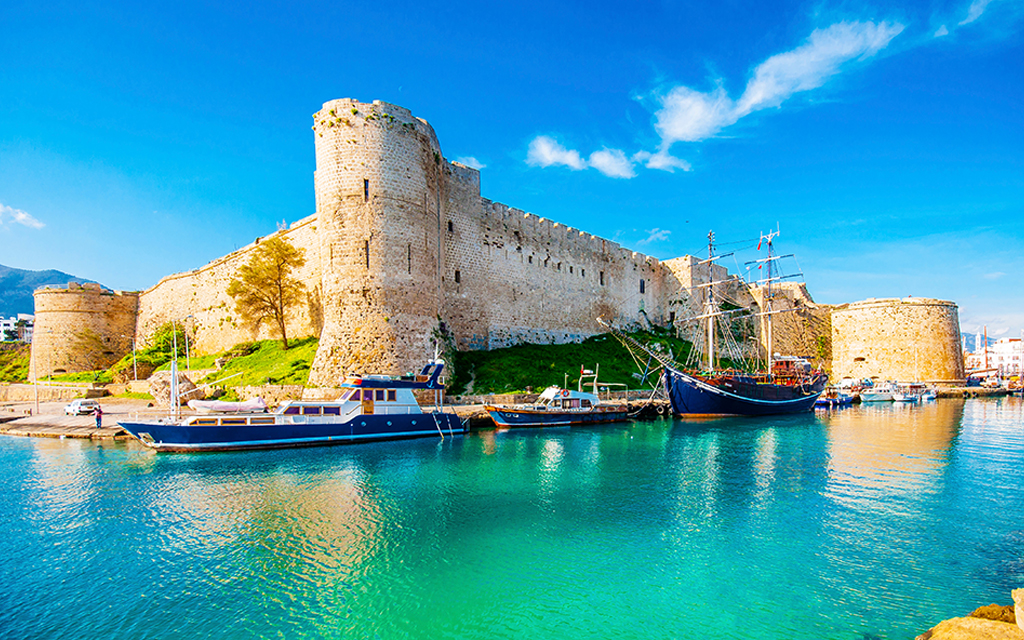
Travellers have to be connected to the EU Digital COVID Certificate (EUDCC), which allows restriction-free travel across all EU and EEA countries following proof of vaccination and a negative COVID test.
Travellers from EU, Schengen, and permitted countries are allowed to travel to Cyprus after they apply for a
a Cyprus Flight Pass. However, travellers from the following countries is suspended: South Africa, Namibia, Lesotho, Eswatini, Zimbabwe, Mozambique, Malawi and Botswana due to the rise of Omicron.
All arrivals to Cyprus must present a negative PCR test, no older than 72 hours, or an antigen test no older than 24 hours and take another test upon arrival and will have to self-isolate until the results came back. Those who have received a booster dose of COVID-19 vaccine are exempt from the COVID-19 testing. Unvaccinated travellers will have to take an Antigen test every 7 days.
Cyprus is also operating a ‘SafePass’ to access public spaces, where face masks must be worn.
Czech Republic

Travellers have to be connected to the EU Digital COVID Certificate (EUDCC), which allows restriction-free travel across all EU and EEA countries following proof of vaccination and a negative COVID test.
All arrivals to the Czech Republic must present a negative PCR test, no older than 72 hours. Arrivals who are not vaccinated will be required to get tested again, on the 5th and 7th days. Vaccinated arrivals, who have been vaccinated and have received a booster vaccination from the EU or other approved countries, are exempt from COVID-19 testing.
Travellers are also required to fill in the Passenger Locator Form and present it upon arrival.
Czech Republic separates countries into five categories with varying entry requirements, the full lists are available here.
As of November 27, anyone who has spent more than 12 hours in South Africa, Namibia, Lesotho, Eswatini, Zimbabwe, Botswana, Mozambique, or Zambia in the past two weeks is banned from entering the Czech Republic.
More information here.
Denmark

Travellers have to be connected to the EU Digital COVID Certificate (EUDCC), which allows restriction-free travel across all EU and EEA countries following proof of vaccination and a negative COVID test.
All foreigners and non-residents entering Denmark from 27 December will need a negative COVID PCR test no older than 72 hours and Antigen Test no older than 48 hours. Fully vaccinated travellers are exempt from quarantine and testing.
Public transportations are operating in Denmark. Public places such as cafes and restaurant must limit their number of customers, and restaurants have to close by 11 pm. The “coronapas” digital COVID-19 certificate is recommended to enter public places.
More information here.
Estonia

Travellers have to be connected to the EU Digital COVID Certificate (EUDCC), which allows restriction-free travel across all EU and EEA countries following proof of vaccination and a negative COVID test.
Arrivals from non-Schengen countries must complete a traveler’s questionnaire before arriving in Estonia. All arrivals to Estonia must present a negative PCR test, no older than 72 hours, or an antigen test no older than 48 hours. All travelers must get tested upon arrival to Estonia. Vaccinated and arrivals from safe countries are exempt from testing.
A 10-day quarantine period will be applied if you are arriving from an EU/EEA country with an infection rate higher than 150 cases per 100,000 of the population in the last 14 days.
More information here.
Finland
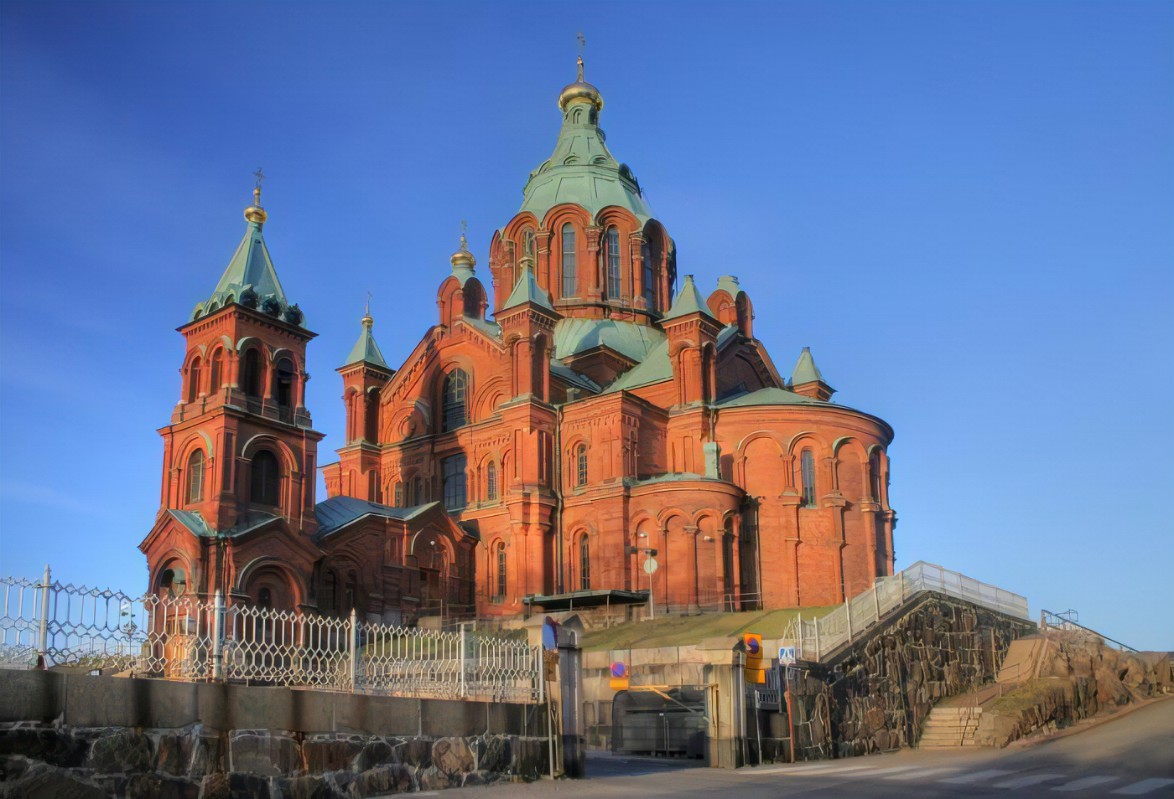
Travellers have to be connected to the EU Digital COVID Certificate (EUDCC), which allows restriction-free travel across all EU and EEA countries following proof of vaccination and a negative COVID test.
All arrivals to Finland are required to present a negative PCR or Antigen test, no older than 48 hours and arrivals from EU and Schengen countries present a negative PCR test, no older than 72 hours. They must also be tested again within 3 to 5 days after arriving. You can book your test appointments at the Finentry app.
Vaccinated arrivals, and those who had COVID-19 and recovered, are exempt from testing.
More information here.
Germany
Citizens and residents from the EU, Schengen, and low-risk third countries can travel to Germany. Travelers that have been fully vaccinated for at least 14 days, may enter from all countries, except those with variant concerns.
All arrivals must register with the authorities before arriving.
Anyone arriving in Germany by any means of transportation is required to present a negative PCR or antigen test no older than 48 hours from an approved institute. Vaccinated arrivals are exempt from tests.
Anyone arriving in Germany from a high-risk area will be required to self-quarantine for 10 days. A second test on the 5th day is optional to shorten quarantine. Vaccinated and fully recovered arrivals are exempt from quarantine unless arriving from a country with variant concern.
In high-risk areas, 22:00-05:00 curfew, closure of nonessential businesses, and strict limits on social gatherings are in place.
In some areas, proof of vaccination (including the booster shot) is needed to enter non-essential businesses. Those without the booster will have to show a negative test.
Unvaccinated individuals are forbidden from participating in many activities in public spaces, and there is currently a lockdown based on the status of vaccination.
Greece

Travellers have to be connected to the EU Digital COVID Certificate (EUDCC), which allows restriction-free travel across all EU and EEA countries following proof of vaccination and a negative COVID-19 test.
All arrivals to Greece will be required to present a negative PCR test, no older than 72 hours or an antigen test no older than 24 hours. Either test must be performed by a lab. All arrivals to Greece, no matter their nationality, who comes from Egypt, Albania, Argentina, North Macedonia, Bulgaria, Brazil, Georgia, Republic of Cuba, United Arab Emirates, India, China, Libya, Morocco, Pakistan, Russian Federation and Turkey must be tested upon arrival.
All arrivals must fill in a Passenger Locator Form.
Beaches are open but people must socially distance themselves. Masks must be worn in all indoor public places.
Curfews have been imposed across some of the Greek islands. Restaurants, cafes and bars in Greece are open until 00:00 and require proof of vaccination or recovery from COVID-19.
More information here.
Hungary
Travellers have to be connected to the EU Digital COVID Certificate (EUDCC), which allows restriction-free travel across all EU and EEA countries following proof of vaccination and a negative COVID test.
All arrivals to Hungary will be screened for COVID-19 symptoms. Vaccinated arrivals may present an immunity certificate to enter the country, while unvaccinated arrivals are required to present a negative PCR test, no older than 72 hours. Due to the Covid-19 Omicron variant, traveling from the following countries is suspended: Botswana, Lesotho, Swaziland, Mozambique, Namibia, South Africa and Zimbabwe.
Social distancing rules are no longer in force, but people must wear face masks in hospitals and ‘social institutions’. As of November 1st, they must be worn on public transport too.
Curfews are no longer in place. Shops and service providers are now open as normal. Restaurants, cafes, and bars are open for outdoor seating for everyone, and indoor seating for those who have been vaccinated.
More information here.
Iceland

Travellers have to be connected to the EU Digital COVID Certificate (EUDCC), which allows restriction-free travel across all EU and EEA countries following proof of vaccination and a negative COVID test.
Passengers are required to fill out a pre-registration form before departure to Iceland. Visitors from other countries must be fully-vaccinated or recovered, and present a negative PCR or antigen test taken 72 hours or less before arriving in Iceland.
Vaccinated arrivals, and those who had COVID-19 and recovered, are exempt from quarantine.
Restaurants in Iceland are open with the limitation of capacity and sanitation measures. Entertainment venues and nightclubs are closed.
More information here.
Ireland

Travellers have to be connected to the EU Digital COVID Certificate (EUDCC), which allows restriction-free travel across all EU and EEA countries following proof of vaccination and a negative COVID test.
All travelers to Ireland must fill out a Passenger Locator Form 72 hours before departure, and not doing so may result in up to €2,500 fine.
Non-vaccinated arrivals must present a negative PCR test, no older than 72 hours. Vaccinated travellers are exempt from testing and quarantine. However, additional tests will be done upon entry.
All arrivals from the UK are advised to take daily antigen tests for five days, starting from the day of arrival.
More information here.
Italy

Travellers have to be connected to the EU Digital COVID Certificate (EUDCC), which allows restriction-free travel across all EU and EEA countries following proof of vaccination and a negative COVID test.
All permitted arrivals, except those from San Marino and Vatican City, will be required to fill a travel declaration form before arrival.
All arrivals from EU and Schengen countries are required to present a negative PCR no older than 48 hours or an antigen test no older than 24 hours. Either test must be performed by a lab.
All arrivals from other countries are required to present a negative PCR no older than 72 hours or an antigen test no older than 24 hours. Either test must be performed by a lab.
Most arrivals to Italy are required to self-quarantine for 10 days. Arrivals from countries on list D will be required to self-quarantine for 5 days, unless presenting negative test results and proof of vaccinations. Arrivals from countries on list C are not required to quarantine.
All arrivals from the EU who have a Green Pass can enter without any restrictions.
Arrivals may be selected randomly for testing upon arrival.
More information here.
Kosovo
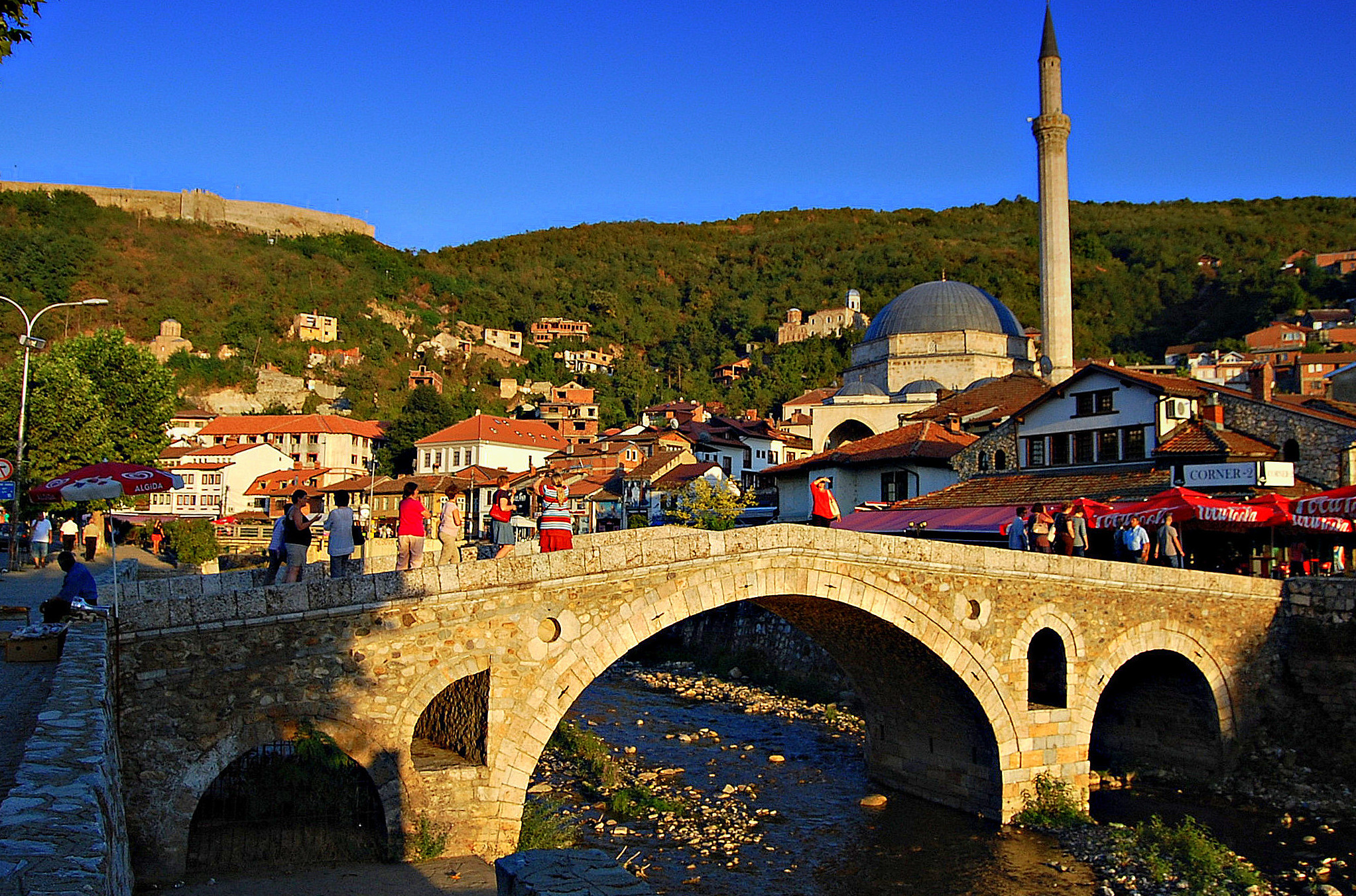
All arrivals to Kosovo, except people under the age of 12 or foreign nationals transiting through Kosovo, are required to demonstrate proof of having received three doses of a COVID-19 vaccination or proof of both doses and a negative PCR test taken with 48 hours of arrival.
There is a 10pm to 5am curfew, with exceptions for emergencies only. Public transport is permitted to operate at half capacity, providing masks are worn.
To use public transport, you will need to show either, a negative RT-PCR test less than 72 hours old, a negative antigen test less than 48 hours old or proof of vaccination.
These countries are marked as red or orange on the official ECDC map here.
Latvia

Travellers have to be connected to the EU Digital COVID Certificate (EUDCC), which allows restriction-free travel across all EU and EEA countries following proof of vaccination and a negative COVID test.
Everyone who intends to enter Latvia is required to complete and submit an electronic form no earlier than 48 hours before entering Latvia.
All arrivals must show a negative PCR test performed no more than 72 hours before flying to be allowed to enter Latvia. Non-EUDCC arrivals must isolate for 10 days upon arrival in Latvia – even if you test negative.
Latvia is operating a ‘green pass’ for access to public spaces.
More information here.
Liechtenstein
Travellers have to be connected to the EU Digital COVID Certificate (EUDCC), which allows restriction-free travel across all EU and EEA countries following proof of vaccination and a negative COVID test.
All arrivals to Switzerland will be required to present a negative PCR test, no older than 72 hours or an antigen test no older than 24 hours. Either test must be performed by a lab. All arrivals will be tested again between days 4 and 7. Fully vaccinated arrivals are exempted to take the test after arrival.
Anybody travelling to Liechtenstein from a ‘high risk’ country must quarantine for 10 days upon arrival.
For the most part, the tourism industry is operating and the usual COVID-19 measures such as wearing face masks and social distancing apply in public spaces.
Liechtenstein follows Switzerland’s travel advice, so information about travel in either country can be found here.
Lithuania

Travellers have to be connected to the EU Digital COVID Certificate (EUDCC), which allows restriction-free travel across all EU and EEA countries following proof of vaccination and a negative COVID test.
Foreign nationals travelling to Lithuania must complete an online registration form 48 hours before they begin their journey.
Anyone over the age of 12, arriving in Lithuania will be required to present a negative PCR, no older than 72 hours or an Antigen test, no longer than 48 hours. Either test must be performed in a lab.
Arrivals who are required to quarantine may take a second PCR on the 7th day, to shorten self-quarantine. Travellers can register for their PCR test here.
Those who are fully vaccinated and have recovered within 90 days before entry, are exempt from testing requirements and quarantine.
More information here.
Luxembourg

Travellers have to be connected to the EU Digital COVID Certificate (EUDCC), which allows restriction-free travel across all EU and EEA countries following proof of vaccination and a negative COVID test.
Citizens and residents of EU and Schengen member countries as well as citizens and residents of Bahrain, Chile, China, Colombia, Indonesia, Kuwait, New Zealand, Peru, Qatar, Rwanda, Saudi Arabia, Singapore, South Korea, UAE, Uruguay, Hong Kong, Macau, and Taiwan may enter Luxembourg.
Vaccinated arrivals from Albania, Andorra, Faroe Islands, Israel, Morocco, Monaco, Panama, Armenia, North Macedonia, San Marino, Switzerland, Turkey, Ukraine, the UK, Vatican City, Moldova, Georgia, New Zealand, Serbia and more need to have a vaccine certificate issued by Luxembourg authorities in order to enter Luxembourg.
All arrivals to Luxembourg will be required to present a negative PCR, no older than 72 hours or antigen test, no older than 48 hours. Either test must be performed by a lab. Vaccinated arrivals, and those who have recovered from COVID-19, are exempt from the testing and they only need to present proof of vaccination instead.
Arrivals from South Africa, Botswana, Eswatini, Lesotho, Mozambique, Namibia or Zimbabwe must quarantine for 7 days.
Luxembourg is operating a ‘CovidCheck’ for access to public spaces.
More information here.
North Macedonia

The borders are open in North Macedonia.
All arrivals to North Macedonia will be required to present a negative PCR test, no older than 72 hours before departing. Vaccinated arrivals may present proof of vaccination instead.
All arrivals to North Macedonia from India, will be required to self-quarantine for 14 days. Other arrivals who are showing symptoms may be required to quarantine. Arrivals without a PCR test or proof of vaccination will have to self-quarantine for 7 days.
Bars, restaurants and cafes are open for business with social distancing and extra hygiene measures in place. Other businesses including shops and hairdressers are open. You may need to present your COVID-19 certificate to enter public places.
More information here.
Malta

Travellers have to be connected to the EU Digital COVID Certificate (EUDCC), which allows restriction-free travel across all EU and EEA countries following proof of vaccination and a negative COVID test.
All arrivals must fill out a passenger locator form before arriving in Malta.
Malta is still operating a traffic light system that will determine which restrictions you will be subject to when you arrive.
Currently, there are no countries on the green list. Arrivals from countries on the red list (all countries) are required to present a recognised vaccination certificate.
Failure to provide a vaccination certificate will result in testing on arrival and quarantine. Travelling from countries on the ‘dark’ red list is only possible upon authorisation from the public health authorities.
Only fully vaccinated people in possession of a recognised vaccination certificate are exempt from testing and quarantine.
Visitors from the UK to Malta who have not been fully vaccinated will have to quarantine for 14 days.
More information here.
Moldova

All arrivals to Moldova must present a negative PCR test, no older than 72 hours, or antigen test no older than 48 hours, or go into quarantine. Either test must be performed by a lab. Arrivals who are fully vaccinated are exempt from testing and quarantine if they could present a proof of vaccination.
Travellers from South Africa, Lesotho, Botswana, Zimbabwe, Mozambique, Namibia, Eswatini, or Malawi is banned.
Regular updates on travel restrictions, which depend on where you’re travelling from, come from the border police website here.
Monaco
Monaco is open for tourists and is following the EU traffic light system to determine restrictions for arrivals. Vaccinated travellers may enter Monaco. However, unvaccinated travellers may only enter for exceptional reasons only.
Visitors have to present a negative PCR and Antigen test no more than 24 hours before arrival. In the absence of a negative test, a quarantine will be enforced for 7 days for green list countries and 10 days for red list countries.
More information here.
Montenegro

Vaccinated travellers from all countries may enter Monaco.
Evidence of a negative PCR or Rapid Antigen test taken 72 hours prior to travel, proof of recovery from COVID-19 or proof of full vaccination with an EU-approved vaccine is needed for entry into Montenegro.
Citizens of Montenegro, as well as permitted arrivals from EU, Albania, Belarus, Bosnia and Herzegovina, Canada, Israel, Kosovo, Moldova, Norway, Kazakhstan, Russia, Serbia, Switzerland, Ukraine, or the US without test results, will be required to quarantine for 10 days. Vaccinated arrivals are exempt from quarantine.
More information here.
Netherlands

Travellers have to be connected to the EU Digital COVID Certificate (EUDCC), which allows restriction-free travel across all EU and EEA countries following proof of vaccination and a negative COVID test.
Fully vaccinated arrivals may enter from any country. They need to fill out a vaccine declaration form before visiting the Netherlands.
All arrivals must present present a negative PCR test, no older than 48 hours, or negative rapid test results taken no more than 24 hours before departure and fill in a health declaration form. Vaccinated arrivals from countries within the EU are exempt from presenting test results.
Anyone arriving in the Netherlands from highly impacted areas is required to undergo 10 days of self-quarantine.
No negative test or quarantine period is required for visitors arriving from “safe” countries across the EU, Asia, and Oceania. A full list can be found here.
More information here.
Norway

Travellers have to be connected to the EU Digital COVID Certificate (EUDCC), which allows restriction-free travel across all EU and EEA countries following proof of vaccination and a negative COVID test.
Travellers to Norway must have a COVID-19 test, regardless of vaccination status. The test can be taken at a testing centre on border crossing points and at the airport. You can also take a COVID-19 test within 24 hours of travelling to Norway.
Fully vaccinated travellers or those with an approved certificate do not need to provide evidence of a negative test on arrival or complete an online registration form 72 hours prior to arrival.
Masks are compulsory in public spaces for everyone over the age of 12, unless you are exempt.
More information here.
Poland
All arrivals must fill out the Passenger Locator Form PLF before travelling.
Travellers have to be connected to the EU Digital COVID Certificate (EUDCC), which allows restriction-free travel across all EU and EEA countries following proof of vaccination and a negative COVID test.
Arrivals may present a negative PCR test or an antigen test no older than 24 hours. Arrivals from Schengen countries may present a test no older than 48 hours, or proof of vaccination/recovery. Either test must be performed by a lab.
All arrivals to Poland from outside the EU/Schengen area must self-quarantine for 10 days. Quarantine may be shortened if testing is negative on the 8th day. Arrivals who are fully vaccinated are exempt.
However, arrivals from Botswana, Eswatini, Lesotho, Mozambique, Namibia, South Africa or Zimbabwe must quarantine for 14 days regardless of vaccination status,
Capacity is limited in shops, bars and restaurants. Wearing face masks is required in enclosed public places and on public transportation.
More information here.
Portugal

Travellers have to be connected to the EU Digital COVID Certificate (EUDCC), which allows restriction-free travel across all EU and EEA countries following proof of vaccination and a negative COVID test.
All arrivals must complete a passenger locator form in advance.
All arrivals to mainland Portugal will be required to present a negative PCR test from the 48 hours prior to arrival, or antigen test no older than 48 hours, and undergo a health screening. Arrivals from high-risk countries must quarantine for 14 days. This can be shortened by presenting a negative PCR test result.
You might have to prove full vaccination status to enter restaurants, tourist venues and accommodation.
Face masks must be worn in public and social distancing and extra hygiene measures are in force in all public settings.
Similar measures have been adopted in the archipelago regions of Azores and Madeira.
More information here.
Romania

Travellers have to be connected to the EU Digital COVID Certificate (EUDCC), which allows restriction-free travel across all EU and EEA countries following proof of vaccination and a negative COVID test.
Everyone entering Romania must fill out this form. All arrivals to Romania must present a negative PCR test taken 72 hours before departure. Fully vaccinated travelers and fully recovered are exempt from pre-arrival testing.
Anyone arriving in Romania that is not vaccinated or recovered from COVID-19, will be required to self-quarantine for 5 days. Arrivals with negative PCR are exempt from the quarantine.
Restaurants, cafes and bars in most of Romania are open until 22:00, under capacity limitations and social distancing requirements.
Locals and visitors must wear a mask when in indoor public spaces, as well as while in crowded outdoor gatherings.
More information here.
Russia

All arrivals must fill this form before arrival.
All arrivals into Russia will be temperature checked and will be required to provide a negative PCR test result no older than 48 hours before arrival. A second test will be conducted upon arrival for arrivals from China, Israel, or the UK.
All arrivals to Russia without test results will be required to quarantine.
Due to the Covid-19 Omicron variant, traveling from the following countries is suspended: Botswana, Eswatini, Lesotho, Madagascar, Mozambique, Namibia, South Africa, Tanzania, Zimbabwe, and Hong Kong.
Bars, restaurants and tourist attractions are now open. Wearing face masks is required on public transportation and in enclosed public places.
More information about Russia’s COVID-19 response here.
San Marino

Travellers have to be connected to the EU Digital COVID Certificate (EUDCC), which allows restriction-free travel across all EU and EEA countries following proof of vaccination and a negative COVID test.
Anyone that is allowed to enter Italy can travel to San Marino.
Restaurants, bars, cafes and other leisure facilities are open with social distancing measures and face mask requirements in place. Gatherings – defined as groups of over 10 people where social distancing cannot be maintained – are still strictly forbidden.
You can check the Re-open EU website for more information.
Serbia

All arrivals to Serbia are required to present a negative PCR test, no older than 48 hours or an antigen test no older than 48 hours. Either test must be performed by a lab. Arrivals who have been vaccinated in the following countries are also exempt from testing requirements: EU member countries, Andorra, Armenia, Austria, Belgium, Cabo Verde, Croatia, Cyprus, Egypt, Estonia, Finland, France, Georgia, Germany, Iceland, Ireland, Italy, Lebanon, Liechtenstein, Lithuania, Malta, Morocco, Moldova, Netherlands, San Marino, Slovakia, Spain, Switzerland, Tunisia, UK, and Ukraine. Arrivals from countries with Omicron concerns will be tested again on days 1 and 7 of their quarantine.
Travelers arriving from countries with Omicron spread must self-quarantine for 14 days. These include South Africa, Botswana, Zimbabwe, Namibia, Lesotho, Mozambique, and Malawi.
Serbian citizens and residents may enter without an RT-PCR or antigen test but must self-quarantine for 10 days unless they are fully vaccinated.
Restaurants, cafes and bars are allowed to serve customers in their outdoor spaces and indoors at reduced capacity. Wearing face masks is mandatory in all public places.
More information here.
Slovakia

Travellers have to be connected to the EU Digital COVID Certificate (EUDCC), which allows restriction-free travel across all EU and EEA countries following proof of vaccination and a negative COVID test.
All arrivals must register with the Slovak government in advance and fill out the Public Health Passenger Locator Form.
All vaccinated arrivals to Slovakia must present a negative RT-PCR test, no older than 72 hours.
All arrivals to Slovakia are required to self-quarantine for 10 days. Fully vaccinated arrivals are exempt from quarantine.Those that are required to quarantine may get tested on the 5th day of their quarantine, to shorten the quarantine period.
More information here.
Slovenia
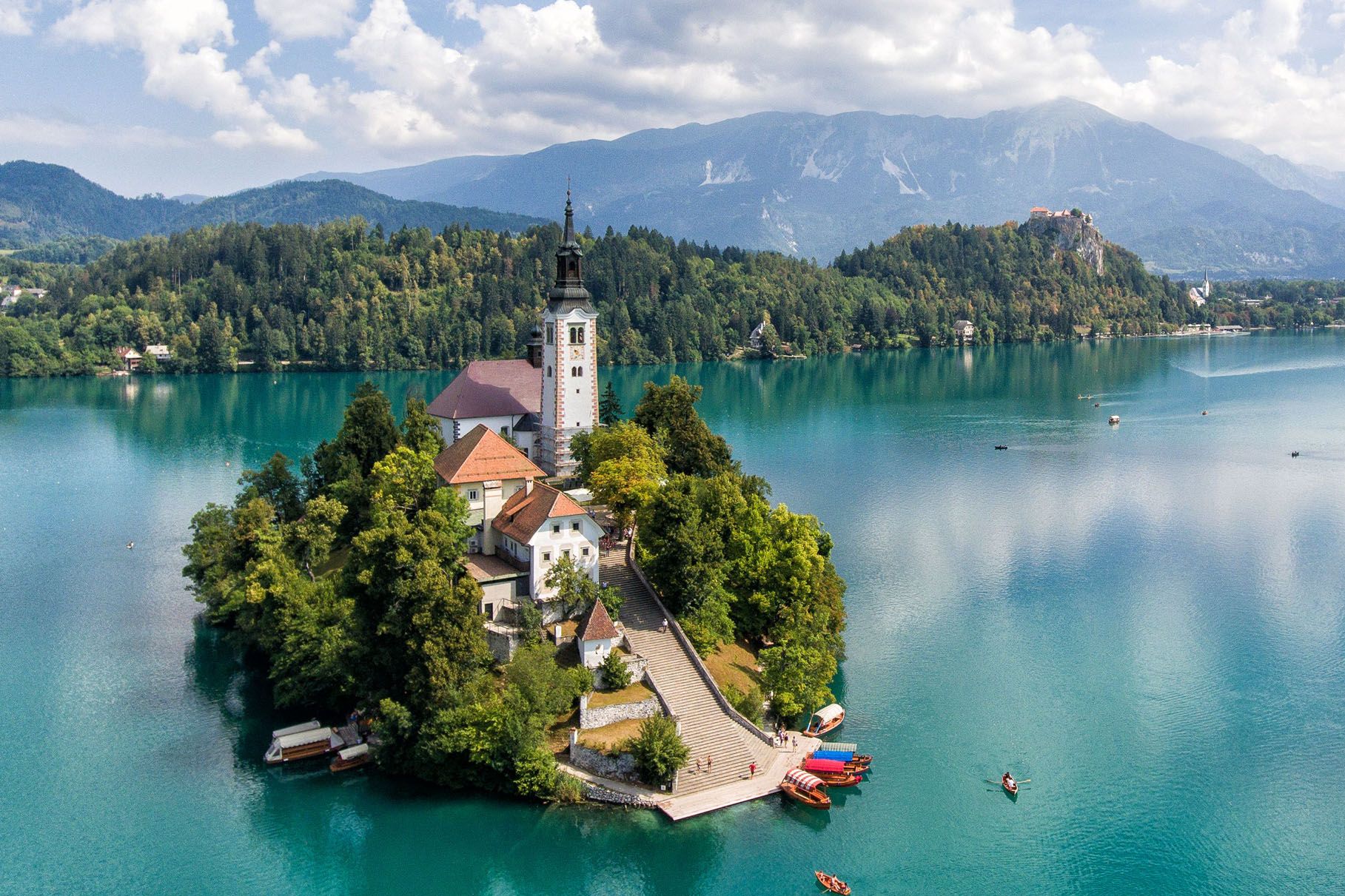
Travellers have to be connected to the EU Digital COVID Certificate (EUDCC), which allows restriction-free travel across all EU and EEA countries following proof of vaccination and a negative COVID test.
All arrivals must fill in an electronic passenger locator form.
All arrivals to Slovenia, will be required to present negative PCR test results, no older than 48 hours, or an antigen test, no older than 24 hours. Alternatively, arrivals may present proof of vaccination or recovery instead.
Anyone arriving in Slovenia without proof of vaccination, recovery, or negative test results, will be required to self-quarantine for 10 days and it can be shortened to 5 days by showing negative PCR.
More information here.
Spain
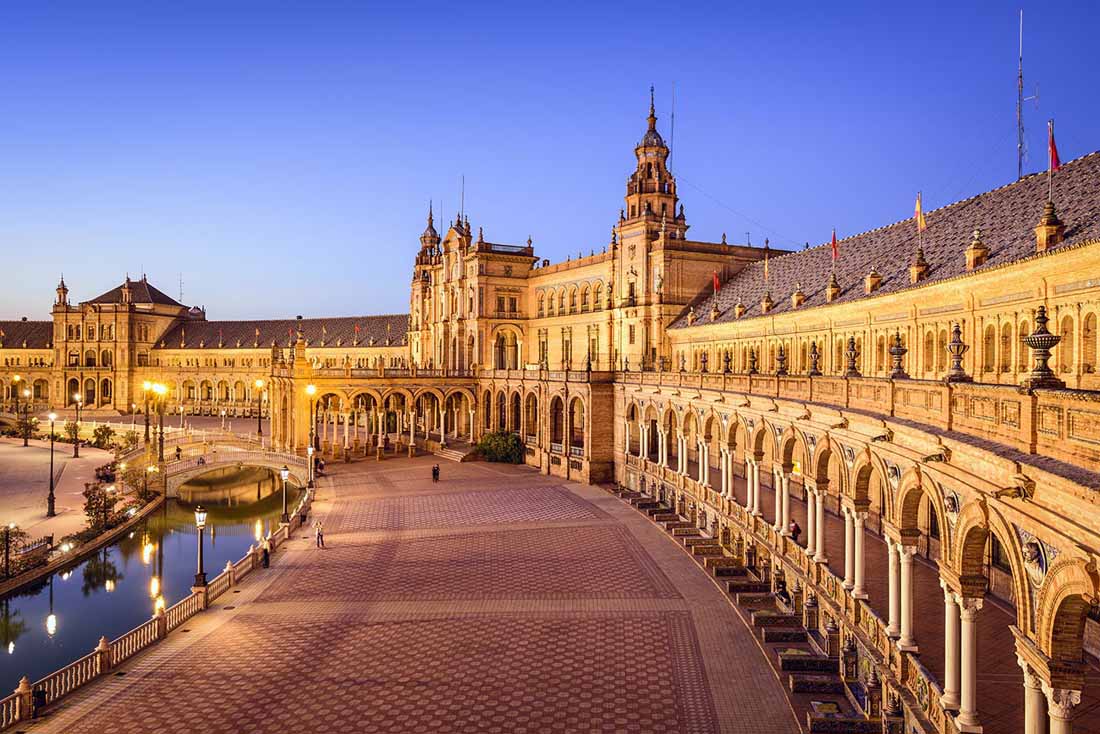
Travellers have to be connected to the EU Digital COVID Certificate (EUDCC), which allows restriction-free travel across all EU and EEA countries following proof of vaccination and a negative COVID test.
Spain has opened its borders for all vaccinated travelers. Most domestic restrictions have been lifted. All arrivals are required to fill in an FCS form beforehand.
All arrivals to Spain will be required to fill out a health control form, including a PCR no older than 72 hours, antigen test no older than 24 hours, or proof of vaccination. Either test must be performed in a lab. Arrivals from countries considered safe are exempt.
A nightly curfew is in place between 02:00 and 07:00, in high-risk areas.
More information here.
Sweden
Travellers have to be connected to the EU Digital COVID Certificate (EUDCC), which allows restriction-free travel across all EU and EEA countries following proof of vaccination and a negative COVID test.
Sweden has begun opening its borders up to most countries outside the EU. All arrivals to Sweden must present a negative PCR or antigen no older than 72 hours. Fully vaccinated and recovered travelers from EEA countries are exempt from pre-arrival testing.
Most of the economy remains open with social distancing, face masks and extra hygiene measures in force.
More information here.
Switzerland

Travellers have to be connected to the EU Digital COVID Certificate (EUDCC), which allows restriction-free travel across all EU and EEA countries following proof of vaccination and a negative COVID test.
All arrivals need to complete an entry form.
Travellers to Switzerland will be required to present a negative PCR test, no older than 72 hours or an antigen test no older than 24 hours. Either test must be performed by a lab. Fully vaccinated travelers are exempt from pre-arrival testing.
Switzerland has a larger permitted list of countries than most European countries. It is updated regularly here.
The rules are different if you are transiting through Switzerland. Check here for full details.
More information here.
Turkey

Foreign nationals arriving to Turkey must register online 72 hours in advance.
All arrivals to Turkey will be required to present a negative PCR test, no older than 72 hours or an antigen test no older than 48 hours. Either test must be performed by a lab. Vaccinated arrivals are exempt.
Travelers from Afghanistan, Bangladesh, Brazil, Egypt, India, Iran, Nepal, Pakistan, South Africa, Sri Lanka, Botswana, Mozambique, Namibia and Zimbabwe must present a negative PCR test, no older than 72 hours even if fully vaccinated.
Public and hospitality services are open.
Outdoor mask-wearing is mandatory.
Turkish Airlines have published a country-by-country breakdown of flight restrictions to Turkey.
The United Kingdom

All arrivals to the UK must present a negative PCR or LFD (Antigen) test, no older than 48 hours. Either test must be performed in a lab. Vaccinated arrivals are exempt from the pre-travel and on-arrival test.
Unvaccinated arrivals to the United Kingdom from any country will be required to self-quarantine for 10 days. Vaccinated arrivals are exempt. You may be fined up to £100 if you refuse to provide your contact details, and up to £10,000 if you do not self-quarantine.
Those who travel from Ireland are exempt from quarantine and testing requirements.
All individuals are required to show proof of vaccination or of a recent negative COVID-19 test to enter certain facilities.
Scotland and Wales require COVID-19 vaccination proof to enter some facilities.
Ukraine
All visitors must have health insurance that covers COVID-19. Click here for further more information.
All arrivals to Ukraine must present a negative PCR or antigen test, no older than 72 hours. Vaccinated arrivals are exempt.
Unvaccinated arrivals must download a location tracking app – “Vdoma” that you can get on Google Play or App Store.
Travel from South Africa, Botswana, Zimbabwe, Namibia, Lesotho, Eswatini, Mozambique or Malawi is banned.
More information here.














